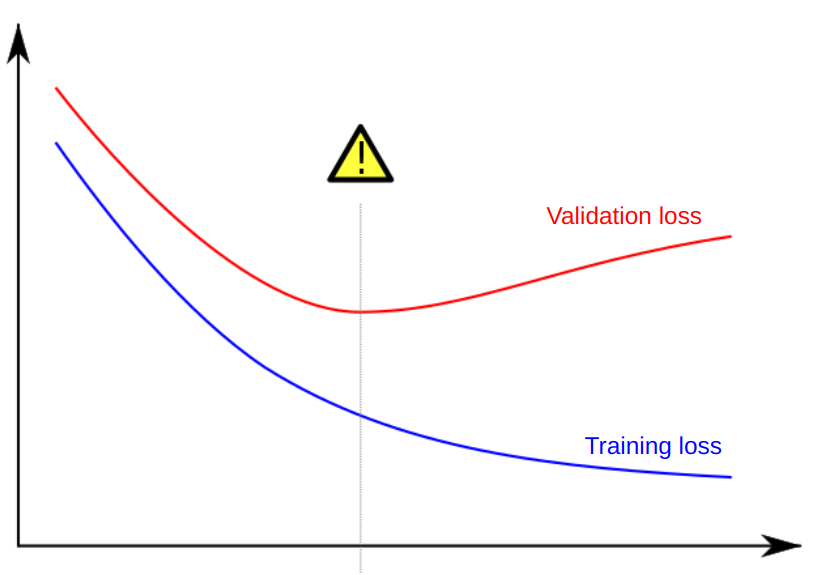Avaliação do desempenho do modelo
Introdução ao Aprendizado Profundo com o PyTorch

Jasmin Ludolf
Senior Data Science Content Developer, DataCamp
Treinamento, validação e testes
$$
- Um conjunto de dados é dividido em três subconjuntos:
| Porcentagem de dados | Função | |
|---|---|---|
| Treinamento | 80-90% | Ajusta os parâmetros do modelo |
| Validação | 10-20% | Ajusta os hiperparâmetros |
| Teste | 5-10% | Avalia o desempenho do modelo final |
$$
- Acompanha perda e precisão durante treinamento e validação
Cálculo da perda de treinamento
$$
Para cada época:
- Soma a perda em todos os lotes no dataloader
- Calcula a perda média de treinamento no final da época
training_loss = 0.0for inputs, labels in trainloader: # Run the forward pass outputs = model(inputs) # Compute the loss loss = criterion(outputs, labels)# Backpropagation loss.backward() # Compute gradients optimizer.step() # Update weights optimizer.zero_grad() # Reset gradients# Calculate and sum the loss training_loss += loss.item()epoch_loss = training_loss / len(trainloader)
Cálculo da perda de validação
validation_loss = 0.0 model.eval() # Put model in evaluation modewith torch.no_grad(): # Disable gradients for efficiencyfor inputs, labels in validationloader: # Run the forward pass outputs = model(inputs) # Calculate the loss loss = criterion(outputs, labels) validation_loss += loss.item() epoch_loss = validation_loss / len(validationloader) # Compute mean lossmodel.train() # Switch back to training mode
Sobreajuste

Cálculo da precisão com torchmetrics
import torchmetrics# Create accuracy metric metric = torchmetrics.Accuracy(task="multiclass", num_classes=3)for features, labels in dataloader: outputs = model(features) # Forward pass # Compute batch accuracy (keeping argmax for one-hot labels) metric.update(outputs, labels.argmax(dim=-1))# Compute accuracy over the whole epoch accuracy = metric.compute()# Reset metric for the next epoch metric.reset()
Vamos praticar!
Introdução ao Aprendizado Profundo com o PyTorch

